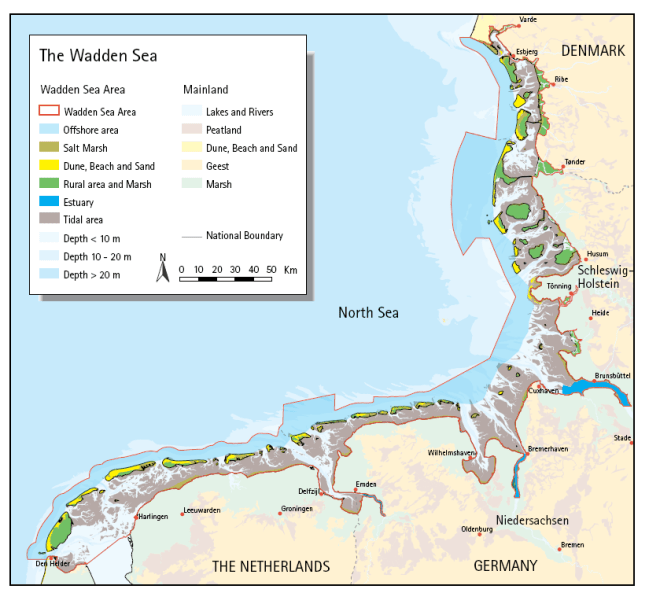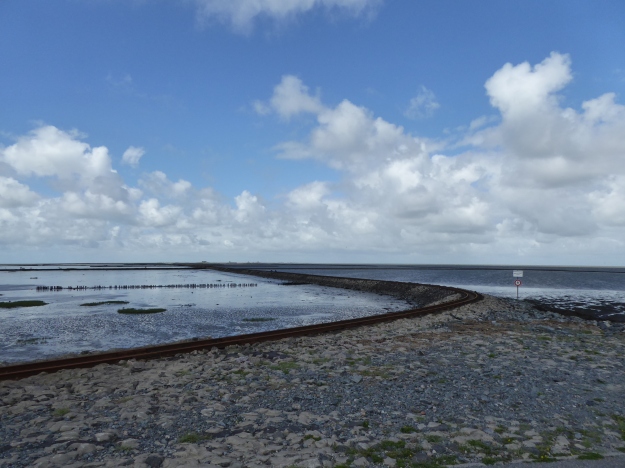Following a successful application for funding from the German Research Foundation (DFG), my funding is secured for three years of research on embedded spatialities and situated practices of coastal management in the Trilateral Wadden Sea Region. The project will commence in Autumn 2016.
A summary is provided below. The project represents a continuation of a my recent exploratory work at the Wadden Sea (reported here & here) and more broadly on cultural geographies of the coast. At a conceptual level there are strong continuities with my previous research on metageographies and to a lesser degree, soft spaces, in spatial planning.

Coastal management constitutes an ever-present and challenging task for coastal communities across the world. Coastal landscapes occupying the interface between land and sea are characterised by particular and evolving relations between society and nature and characterised by complex interactions between geophysical, ecological, economic and socio-cultural processes. They are imbued with cultural and natural values and associated with diverse and at times contested rationalities of coastal and nature protection. Theoretically informed understanding of the relationships between coastal communities and their environments remains limited. In particular, there is an evident need for situated perspectives which explicitly recognise the diversity of coastal places and associated embedded practices of coastal management.
This research project introduces a novel, innovative approach to addressing the spatial dimensions of coastal management and the implications of particular spatialities on coastal management practices. Taking seriously the proposition that coexisting heterogeneity, multiplicity and diversity is a constitutive feature of spatiality, the project will firstly examine the extent to which coastal management practices are regionally embedded and situated within the coastal landscape. Through comparative case study analysis the research will identify similarities and dissimilarities in coastal management practices across the Wadden Sea and assess the extent to which dissimilarities are associated with local and regionally-specific cultures of practice and landscape characteristics. Secondly, recognising the socially constructed nature of space as well as the structuring role of spatialities in social relations the research will examine the role of embedded spatialities in the collective construction of coastal landscapes and practices of coastal management.
Two comparative cross-border case studies, located at the Dutch-German and Danish-German borders constitute the empirical focus of the research. The project will (a) identify the principal SIS of coastal management within each case study area and their associated actor constellations, normative principles and cultures of practice; (b) identify the influence of material spatial practices on the social construction of the Wadden Sea coastal landscape; (c) examine the role of metageographies as powerful spatial structures underlying the institutional structuring of coastal landscapes and coastal management practices; (d) identify, classify and critically examine processes of spatial framing and resultant spatial frames and their roles within the discursive context of specific sectoral-institutional systems; (e) examine the extent to which the spatial separation of nature and culture in discursive and material structures influences the conceptual separation of nature and culture within the wider institutional contexts of coastal management and nature protection.



